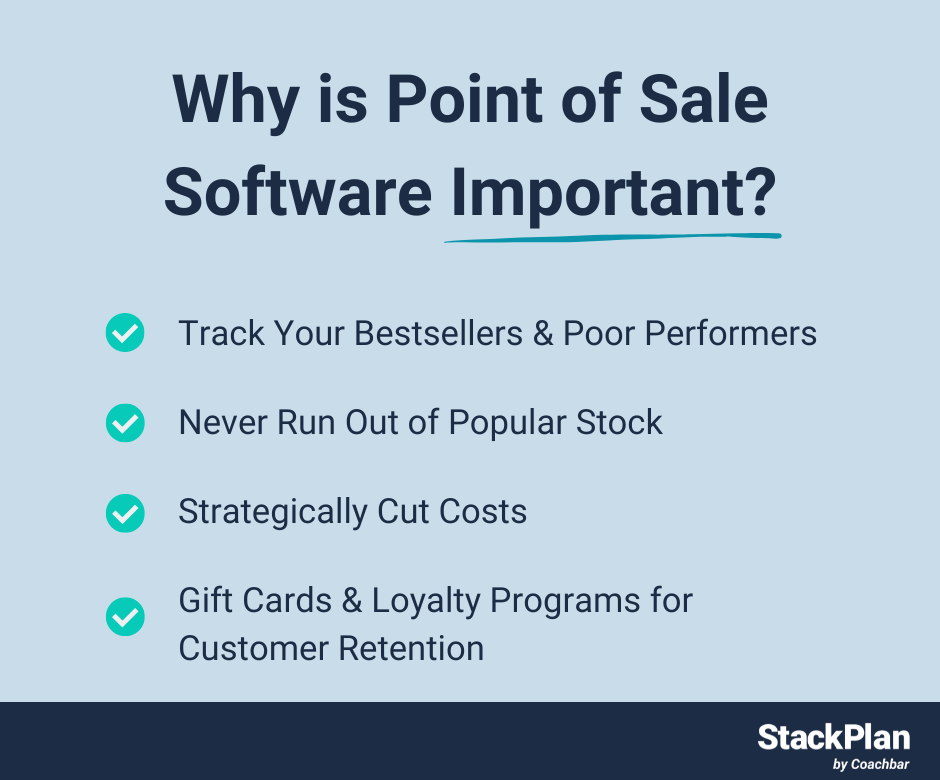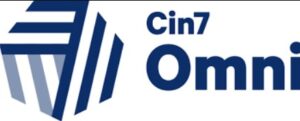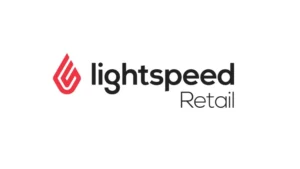What’s one thing you always run into when you’re shopping? It’s not the old-fashioned chime of a register drawer opening – it’s the quiet beeping of terminals ringing up sale after sale. Point of Sale (POS) systems play a pivotal role in the operation of a business – both on the sales floor and off.
The right point of sale software can streamline your operations, improve customer experiences, and even boost your bottom line. If you’re looking to invest in a POS system, here’s what you need to know to choose POS software that works for your business.
Why is Point of Sale software important?
Before diving into the nitty-gritty of choosing a POS system, let’s look at why it matters. At its most basic level, a POS system is software that allows you to process transactions and manage your sales and inventory data.
But it’s so much more than just a cash register upgrade. POS software can:
- Track sales trends and customer behavior.
- Monitor inventory levels and send alerts when stocks are running low.
- Create detailed reports on revenue, profits, and expenses.
- Integrate with other systems like accounting and marketing tools.
- Offer features like loyalty programs, gift cards, and online ordering
Track your bestsellers and poor performers
Investing in a POS system can have a significant impact on your business’s efficiency, profitability, and customer satisfaction. It can also help you make informed decisions about your business based on data you might not have access to otherwise.
By tracking sales trends and customer behavior, you can identify which products are selling well and which aren’t performing. This information can help you make decisions about which products to stock, which products to discontinue, and which products to promote.
Never run out of popular stock
Similarly, by monitoring inventory levels and receiving alerts when stocks are running low, you can ensure that you never run out of popular products, helping you avoid lost sales and disappointed customers.
Strategically cut costs
Creating detailed reports on revenue, profits, and expenses can also help you make informed decisions about your business. For example, if you notice that your expenses are increasing faster than your revenue, you might need to cut costs or increase prices to maintain profitability.
Integrating your POS system with other systems like accounting and marketing tools can also help you streamline your business processes. By integrating with your accounting software, you can automatically update your financial records every time a sale is made. This can save you time and reduce the risk of errors.
Impress customers with gift cards and loyalty reward programs
Finally, offering features like loyalty programs, gift cards, and online ordering can help you attract and retain customers. Loyalty programs can encourage customers to return to your store by offering rewards for repeat purchases. In fact, a recent poll showed over half of customers are willing to spend more with a brand they like, even if cheaper options exist.
Gift cards are also a great way to attract new customers and generate revenue. Plus, online ordering can help you reach customers who might not be able to visit your store in person.
Lightspeed POS is a great option if you’re focus is customer loyalty – it has built-in membership and subscription tools, making it easy to keep customers engaged and coming back for more.

How to choose the right POS system
Choosing the right POS system for your business can be a daunting task. With so many options available, it’s challenging to figure out which is the best POS software for your specific needs.
Here’s a quick and easy process to assess your business requirements so you can select point of sale software that works for you.
Identify your business type and size
The first step in selecting a POS system is identifying your business type and size. The needs of a small boutique with one employee will be vastly different from those of a large restaurant chain with multiple locations.
For example, a restaurant may require a POS system with advanced table management features, while a retail store may need a system with robust inventory management capabilities. Consider your business type, size, and number of employees to determine what features and functionalities you need.
Additionally, think about your business’s growth potential. If you plan to expand in the future, it’s essential to choose POS software that can scale with your business.
Determine your budget
Another crucial factor to consider when selecting a POS system is your budget. POS systems come with a range of price points, and it’s essential to set a budget before you start shopping around.
Keep in mind that the upfront cost is not the only expense you’ll incur – you’ll also need to factor in ongoing fees like software updates, payment processing fees, and customer support. Make sure to compare different providers’ pricing structures to find the most cost-effective option.
If you’re on a budget, Square POS is one of the most affordable POS systems on the market. There’s no monthly fee and a relatively low 2.6% (+$0.10) transaction fee.
It’s also important to consider the return on investment (ROI) of your POS system. A more expensive system may offer features that can save you time and money in the long run, such as automated inventory management or integrated accounting software.
List your must-have features
When you select point of sale software, make a list of your must-have features. These are the features that are essential to your business operations and will help you run your business successfully.
For example, if you run a restaurant, you may require a system with table management, online ordering, and kitchen display integration. Toast is a great POS system for this because it’s made specifically for restaurants.
On the other hand, if you run a clothing store, you may need a system with inventory tracking, purchase order management, and customer relationship management (CRM) capabilities. If you’re in the retail space, you can’t go wrong with Shopify POS – it turns any mobile device into a POS terminal, which is great for small businesses.
Other features to consider include:
- Real-time reporting
- Employee management
- Mobile compatibility.
- Loyalty and rewards programs
- Gift card integration
Review integration opportunities
For your point of sale software to advance your business, it needs to integrate with the rest of your software system, including your inventory management system and accounting program.
Adding the right system to your tech stack allows for seamless data flow between inventory management, customer relationship management (CRM software), accounting and ecommerce platforms. You will have better customer experiences and better reporting and analytics.
Unfortunately, it’s not always clear which solutions work well together – even if they’re listed on a software provider’s integration page. By working with a business analyst or one of our integration experts to select the best solution for your business now and in the future.
By taking the time to assess your business needs, you can choose POS software that will help you run your business efficiently and effectively today and in the future.
Evaluating the different point of sale software options
Now that you’ve identified your business requirements, it’s time to start shopping around. Choosing the right POS software can be a game-changer for your business, but it’s easy to get it wrong. Here are some factors to consider when evaluating POS software options:
Cloud-based vs. on-premise solutions
One of the first decisions you’ll need to make is whether to go for a cloud-based or on-premise solution. Cloud-based systems are becoming increasingly popular for their convenience and scalability.
They are hosted on remote servers, which means that you can access your data from anywhere with an internet connection. You don’t need to worry about managing servers or backups, as your provider takes care of it. Cloud-based solutions also offer automatic software updates, so you always have access to the latest features.
On the other hand, on-premise solutions offer greater flexibility and customization. They are installed on your local servers, which means that you have full control over your data and security.
You can customize your system to meet your specific needs, and you don’t need to rely on internet connectivity. However, on-premise solutions require more upfront investment, as you need to purchase and maintain hardware and software licenses. You also need to take care of backups and updates yourself.
Consider which option makes the most sense for your business needs. If you have multiple locations or need to access your data remotely, a cloud-based solution might be the way to go. If you have unique requirements or prefer to have full control over your data, an on-premise solution might be a better fit.
Cloud-Based Software | On-Premise Software | ||
Pros | Cons | Pros | Cons |
Access remotely | Reliant on internet connectivity | Great flexibility and customization | Higher upfront investment |
Automatic software updates | Not reliant on internet connectivity | Require hardware and software licenses | |
Provider manages servers | You manage your own servers | ||
Easy to scale | Harder to scale | ||
User-friendliness and customization options
Your POS system should be easy to use and navigate, both for you and your employees. Look for a provider that offers user-friendly interfaces, customizable dashboards, and intuitive reporting tools.
Your employees should be able to learn the system quickly and use it efficiently. The more user-friendly your POS system is, the less time you’ll spend on training and support.
Customization options are also important, as they allow you to tailor your system to your business needs. Look for a provider that offers flexible workflows, customizable fields, and integrations with third-party apps. This will help you automate your processes and reduce manual errors.
Checking integration capabilities with existing systems
If you already use other systems like accounting software or payroll processing, make sure that your POS can integrate with them. Seamless integration can save you time and money while avoiding data discrepancies.
Look for a provider that offers pre-built integrations or APIs that allow you to connect your systems easily. This will help you streamline your operations and avoid duplicate data entry.
Clover is the best POS software for integrations. The Clover App Market has hundreds of apps that help you manage almost every aspect of your business.
Time and cost to implement and integrate
Beyond answering the question “Does this integrate with my current software?”, you also need to know how long it takes to implement the new system and integrate it with your existing tools. There are often multiple decisions to be made about where data goes first, how often it synchronizes, and which system is your point of truth.
Experienced software implementation consultants and business analysts can help you answer these questions, and determine how long it will take to set up your new solution and have everything working together.
Security and compliance considerations
When you choose POS software, prioritize data security and compliance. A data breach or compliance violation can have disastrous consequences for your business’s reputation and finances. Make sure your POS provider follows industry-standard security protocols, including encryption, firewalls, and data backup. In addition, it is essential to ask about their security measures and ensure that they comply with relevant regulations like GDPR and CCPA.
Encryption is the process of converting sensitive data into an unreadable format that can only be deciphered with a decryption key. Your POS provider should encrypt all sensitive data, including credit card numbers, customer information, and other personal data.
Firewalls are another critical aspect of data security. A firewall is a software or hardware device that monitors and controls incoming and outgoing network traffic. It acts as a barrier between your internal network and the internet, preventing unauthorized access to your data.
Your POS provider should also have a robust data backup system in place to ensure that your data is safe and secure in case of any unforeseen events like system crashes or natural disasters.
Understanding PCI compliance requirements
Payment Card Industry (PCI) compliance is essential for any business that accepts credit card transactions. PCI compliance ensures that your business follows a set of security standards designed to protect customer data and prevent fraud. Therefore, your POS system should be PCI-compliant and adhere to regulations like EMV (EMV, or Europay, Mastercard, and Visa, is a global standard for credit and debit card payments).
Choosing a provider with a strong track record
When selecting a POS provider, do your research and read reviews from other businesses so you know you’re choosing a reputable and trustworthy provider. Look for a provider that offers robust customer support and can walk you through any technical or compliance-related issues that may arise.
You should also consider the provider’s experience in the industry and their track record of success. A provider with a proven track record of success is more likely to provide reliable and secure services.
Lastly, ensure that the provider offers ongoing support and maintenance so that your system is up-to-date and secure. Regular updates and maintenance keep your system secure and prevent any vulnerabilities or security breaches.
Which POS system will you choose?
Investing in the right POS system is a significant decision that can benefit your business in many ways. So make sure you choose POS software that aligns with your business operations, budget, and security needs.
By evaluating different options and considering key factors like features, integrations, and compliance, you can find the right POS system to help your business thrive. The StackPlan Directory contains vetted consultants who can take the guesswork out of selecting a POS and help you find the right system for your business and connect you with an implementation expert to integrate it with the rest of your tools and systems.
Need Help Evaluating
your Current Inventory Systems?
Visit our directory of software consultants in the StackPlan Consultant Directory. Vetted consultants are ready to support your business needs.








